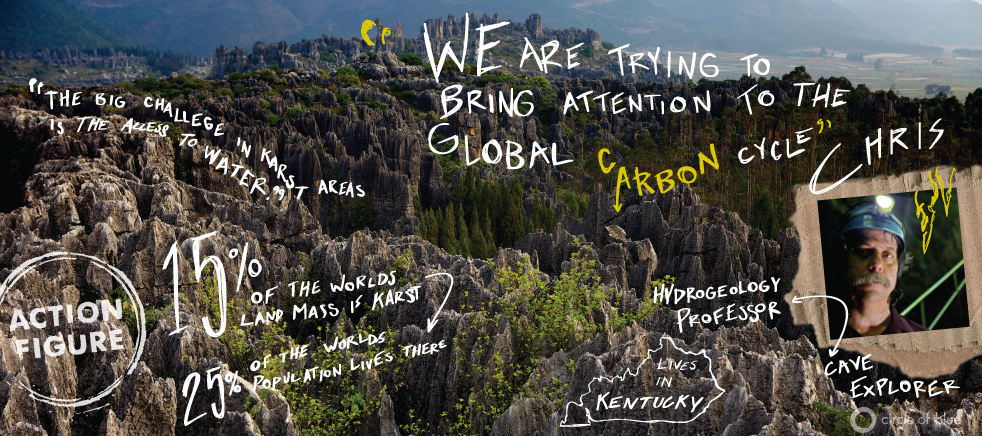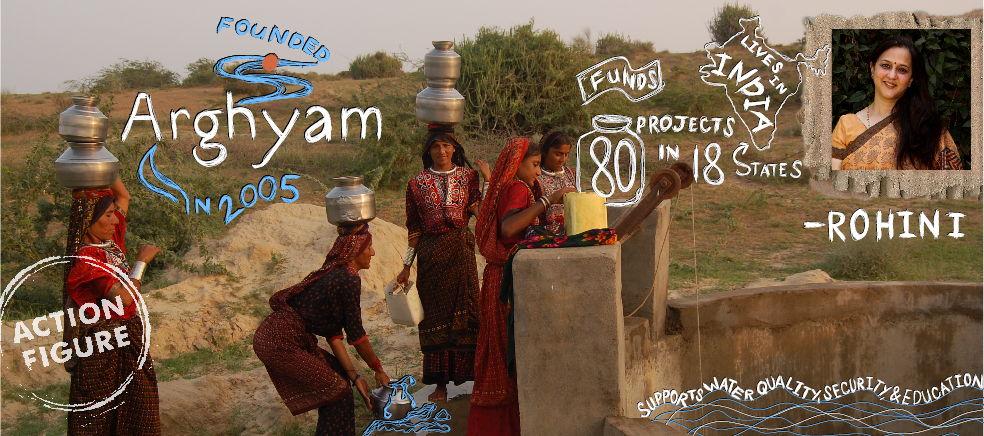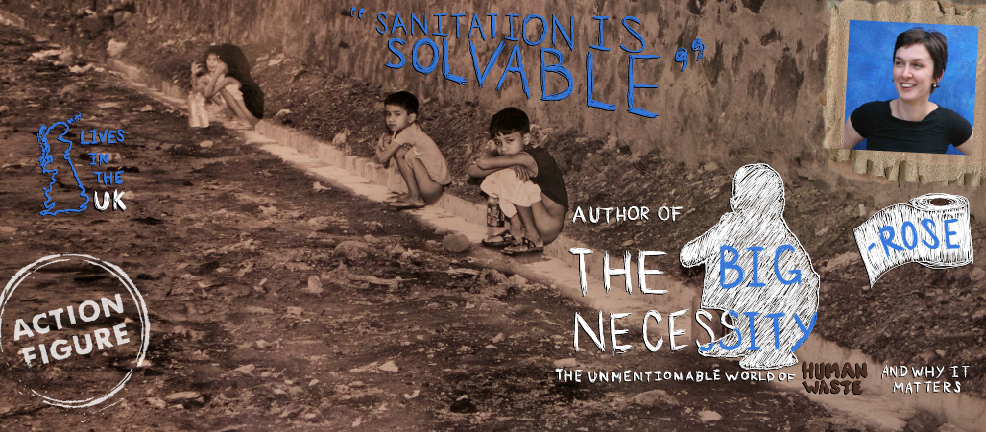Chris Groves
Dr. Chris Groves spends a lot of his time going underground into caves carved by eons of water flow. Once a boy with an interest in rocks, today Groves is a world-renowned cave and limestone karst expert who directs the Hoffman Environmental Research Institute at Western Kentucky University. “It was the only practical way to do this for a living,” Groves says of his decision to pursue an academic career in geography and geology. “I teach to support my habit.”
Groves helps to map out and respond to the water access and pollution challenges in the soluble rock layers known as karst landscapes, which cover 15 percent of Earth’s land mass and host about a quarter of the global population. In these unusual geologic formations, water flows through a honeycomb of porous rock beneath the ground’s surface, coursing through dark caverns and crevices, often unknown to the people who live above. As such, karst regions represent a substantial facet of the global water crisis.
Karst regions could also have significant implications for understanding climate change, according to Groves. In these areas, water gradually dissolves calcite, a reaction that consumes large amounts of carbon dioxide, creating a potentially substantial inorganic carbon sink. Groves is collaborating with American and Chinese scientists to understand and quantify the role of karst processes in the global carbon cycle. “The way to think of the global carbon cycle is like a bank account, and we are trying to keep track of the balance of deposits and withdrawals impacting the level of CO2 in the atmosphere,” he says. “We are trying to bring attention to the role of geology in the global carbon cycle because its potential impact has been under appreciated.”










Leave a Reply
Want to join the discussion?Feel free to contribute!